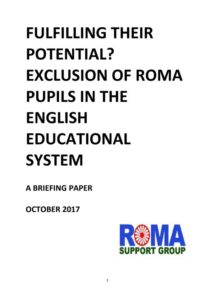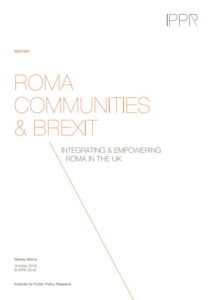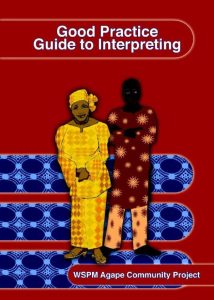Roma Community - Educational Needs
Language and Literacy
Many Roma people will speak a dialect of Romanes as a first language, and usually at least one additional language, reflecting their history of continuous migration. The second language may be limited in vocabulary depending on educational opportunities. Historically Romanes has been an oral language. Only relatively recently has a written version begun to emerge. So it is understandable that many Roma people may struggle with reading and writing it. This is compounded by the educational segregation of Roma children into schools for pupils with special educational needs. So written communication is usually inappropriate and ineffective for Roma community members. Furthermore, the Romanes language does not contain words for emotions, and there are taboos around certain health conditions. So talking about mental health can be very difficult for example. It is important to use interpreters who speak the correct dialect of Romanes to ensure good communication with Roma people. Professionals need to be aware of some key issues when working with interpreters, including the kinds of linguistic challenges set out here, and the significant lack of Romanes speaking interpreters. More information about Romanes language and dialects can be found here.
Impact of Discrimination
Discrimination within the education and social care sector and limited opportunities to access quality education have had a significant impact on language acquisition and understanding different concepts. So it is important for service providers working with Roma families to be aware that terminology such as ‘assessment’, ‘care plans’ ‘direct payments’ and even ‘parenting’ may be impossible to understand, and will need to be explained using very clear, practical examples. The role of professionals will also need explaining to ensure that there are no misunderstandings.
Educational Opportunities
Just as any young person, young Roma people want to feel that they belong and are part of their community. With increasing opportunities and encouragement to access education and professional support, the younger Roma generation are recognising that their lives can be different to those of their parents and grandparents. Investing time and effort in young Roma people is essential to help them realise their true potential and enable them and their families to have a better life.
Please click on the pictures for more information.





